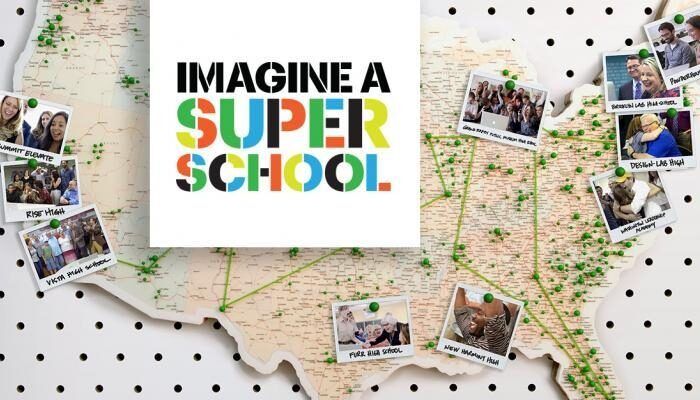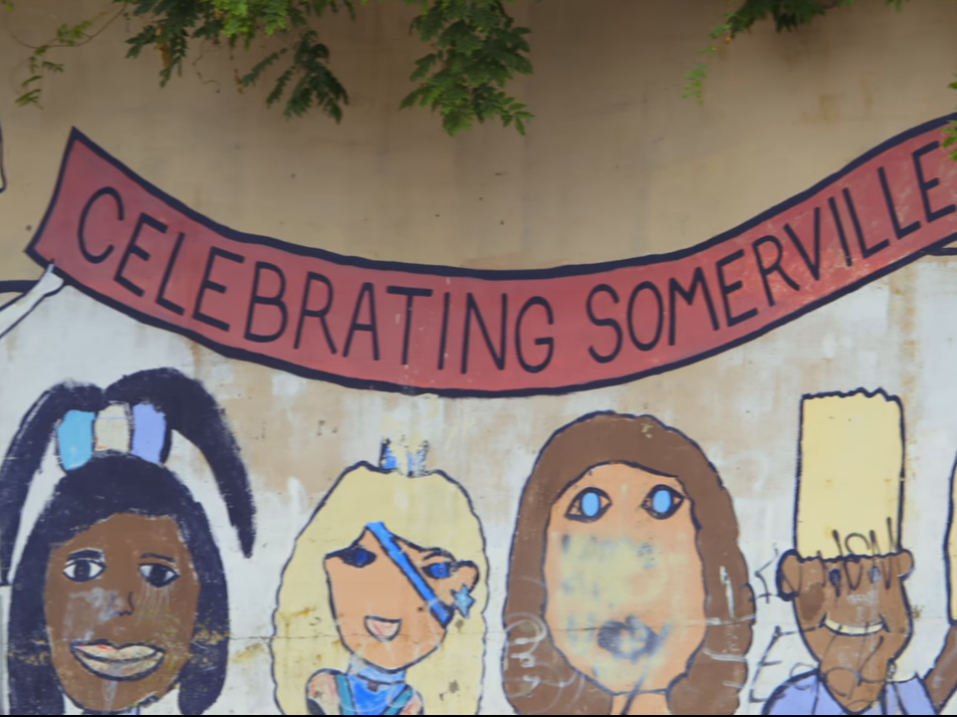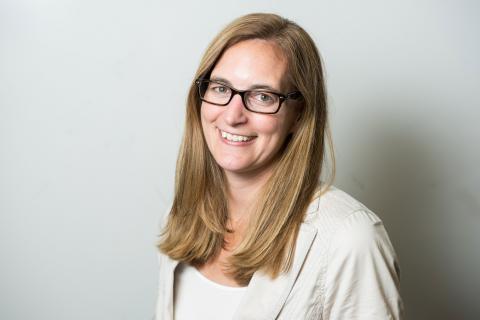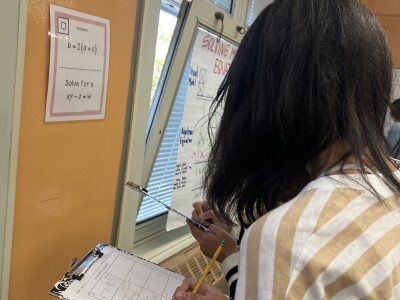Celebrating XQ Super Schools with NGLC Roots: Powderhouse Studios
Topics

We’ve all had the experience of truly purposeful, authentic learning and know how valuable it is. Educators are taking the best of what we know about learning, student support, effective instruction, and interpersonal skill-building to completely reimagine schools so that students experience that kind of purposeful learning all day, every day.
With a new $10 million grant, the founders of Powderhouse Studios are reshaping the future of high school. Learn about their history of innovative, personalized learning school design.
Last month, XQ announced ten winners of its super-competitive $10 million Super School grant program. Half of the winners have NGLC roots. We think that’s something to celebrate.
As a result of the XQ award, the leaders behind Summit Elevate, Brooklyn LAB High School, Powderhouse Studios, Washington Leadership Academy, and RISE High have emerged as influencers in the national conversation about the future of the American high school. This blog series takes a look back at their influence on next gen school design by tracing their NGLC roots.
To mark the leadership of the innovators behind the five XQ Super Schools, we share with you their winning design along with their own thoughts about reimagining education and their NGLC roots. Today, we celebrate Powderhouse Studios.
Powderhouse Studios
XQ Super School Description: Imagine students in a school that cultivates their curiosity to unlock endless discovery.
Independent student-led and teacher-guided projects prepare students for college and life through exploration, research and design.
At Powderhouse Studios, students will collaborate with local scientists, artists and researchers to master rigorous academic topics and become independent investigators of the world around them. Breaking down the limitations of grades, classrooms and subjects, this Super School enables students to work together year-round, in the classroom and beyond. Every student will be supported by an academic and support team, consisting of a social worker, a curriculum developer and a personal project manager to ensure individualized success. (Source)
An Interview with Powderhouse Studios’ Alec Resnick
What are you most excited about with your XQ SuperSchool design?
The same thing that excited us about our NGLC school design: the opportunity to actually prototype a new vision for what infrastructure supporting learning and human development looks like.
Instead of thinking in terms of curricula and classes, we’re thinking in terms of a tightly-knit, cross-functional team supporting a small group of young people as they grow, working on larger and larger scale projects driven by their own interests and designs. Sure, that’s enabled by a very different way of thinking about what computation can enable in thinking and learning, and we’re very excited about that (and many of the other innovations we’re working to introduce). But more than anything, we’re excited by the chance to invent the future of learning rather than reform or redesign it.
We’re starting with a pretty simple idea that most people take for granted in the rest of the world: creative projects are hard and messy and best tackled by small tightly-knit teams with the resources and autonomy to do good work. All we’re trying to do is extend that to young people in public school.
How has your thinking evolved since you were funded through NGLC?
The vast majority of the core design has remained the same. We still think that small teams of people working on larger-scale creative and research projects offer a very rich form for the future of learning. We still think that conceiving of school as about the allocation of time and money and teams first (not classes) is right. We still will lean heavily on new forms of exploring computation and storytelling to make traditionally academic subjects accessible through more vocational and artistic approaches.
What has changed is our appreciation for just how ridiculously hard it is to start a new public school that substantially rethinks the basic assumptions behind school. Systemically, we can’t rely on a group of mortgage-less and childless twentysomethings patching together support for four years of planning, advocacy, and design while they bushwhack opaque political and regulatory obstacles. We need a new infrastructure for developing radical school leaders and designs, and in ways we didn’t realize when we started this process; we’re now devoted to building that infrastructure in the longer run.
In what ways has your involvement with NGLC springboarded Powderhouse Studios to where it is today?
NGLC were the first folks to take a chance on us. They connected us to a broader community that wasn’t thinking just in terms of school-as-it-is. The NGLC network showcased people tackling school from a bunch of different angles—technical, political, pedagogical, and so on. For that broadening of perspective (and the breathing room to get this effort off the ground in the first place), we owe them a debt of gratitude.
What motivates you personally to be an innovator? What drives your passion?
Right now, hundreds of thousands of people are having their futures curtailed because of the mismatch between their needs and traditional educational settings. They’re learning to hate reading. They’re learning that they “aren’t a math person.” They’re learning that they’re “dumb.” They’re learning to accept arbitrary constraints and structures which waste their time and attention. And collectively, when these costs are paid by poor people—especially minorities—it becomes a matter of life and death. I think this is an enormity that will take us decades to fully articulate. But we recognize some of it, and we are driven to invent alternatives.
It’s not all dour. That tragedy pushes us to invent something new. The excitement in creating something new is a deeply humanist project: We get to work every day to imagine a future where people are supported to discover what matters to them, design projects to engage that, and develop those projects in a loving, supportive environment that’s simultaneously on the cutting edge of building new tools to support learning.
An excerpt from Seymour Papert’s “Some Poetic and Social Criteria for Education Design” captures some of it—which is more relevant today than when it was first written (in 1976!):
Surely I have said enough to make the point that formulating the task as design for education in a technologically rich future leads very quickly into areas of research which are totally neglected, indeed quite unsuspected, by the community of professionals in "education research and innovation." There must in the world be tens of thousands of people struggling to understand what happens in a classroom where children are asked to do sums with pencil on square paper. Some of them try to improve matters by having the children do the same sums on computer terminals. I do not think it is my business to criticize or judge the value of all this. But I cannot help being overwhelmed by the fact that there must be ten thousand or more people doing that for each one person who has the other kind of design process of which I have tried to give you a glimpse. And I suggest that what happens in ten years depends very sensitively on whether our society decides that it can afford a small shift in this ratio. So perhaps the problem is more political than technological. And if the political aspect depends on how well we can convey an alternate vision, then perhaps it is even more poetical than political.

NGLC Roots
sprout & co., an organization that runs STEAM-based programs in- and after-school with youth and evening programs with adults, in partnership with Somerville Public Schools, applied to NGLC for a planning grant to support the development of what is now known as Powderhouse Studios. The founders were one of only nine planning grantees selected from over 90 applicants across the nation and received $100,000 in 2014. The grant represented an early stage investment in “breakthrough school model” design, identifying Powderhouse Studios as a school design with a compelling vision, a viable plan, and a high-capacity leadership team backing it.
NGLC initiated planning grants after recognizing the benefits of offering school design teams supports as they fully develop their school models: time to incubate and test their ideas, a network of like-minded educators, and resources for developing the academic and organizational plans needed to launch a school.
More globally, NGLC viewed the planning grants as a way to encourage and support a broader diversity and deeper boldness of learning models, to engage more districts in next gen school design, and to encourage a wider swath of innovators to take on the challenge. Because of its XQ Super School award, Powderhouse Studios embodies that vision.
Congratulations to Powderhouse Studios and Somerville Public Schools for pushing our nation forward by inventing what high school can—and should—be.




